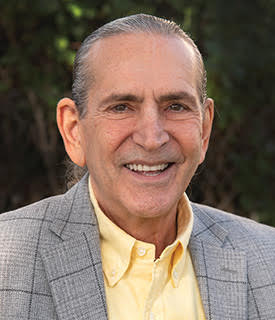All our lives we’ve been told that stress makes us sick. Stress causes diseases like cardiovascular disease. “Don’t stress!” But let’s rethink stress for a moment. A study tracked 300,000 adults in the US over a course of 8 years. Participants were asked two questions: How much stress have you in the last year? and Do you believe that stress is harmful for your health? Then researchers looked at public death records to see who died. What they found out was that people who had a lot of stress in the last year had a 43% increased chance of dying. However, this was only true for those who thought stress was harmful. In comparison, people who had a lot of stress but didn’t think it as harmful had the lowest rest of dying – even lower than those who had very little stress. Over the 8 years of tracking deaths, 182,000 Americans died not from stress, but from the belief of stress being harmful. That’s 20, 000 deaths a year!
We should be teaching people that stress is unhealthy. Instead we should adjust the way we think about stress in order to adjust its effect on us.
There’s something known as the social stress test. It’s a test made to stress people out. When participants come into the study, they’re told they need to make a speech on their personal weaknesses in front of a panel of expert evaluators. To add more pressure and stress, there’s bring lights and cameras in their faces. The evaluators are also trained to give discouraging non verbal feedback. Then to top it off, they’re given a math test with an experimenter who’s trained to bully and harass the participants. So by now, everyone is nervous, maybe sweating with their hearts pounding. Usually, we would see these as signs of anxiety, on the verge of a breakdown. However, this is actually how your body energizes itself to prepare you to meet this challenge.
In contrast, participants doing the same study, another time around, were told that when they feel physical symptoms of stress and anxiety it’s actually a good thing. They were told it’s their body preparing them to face the challenge and to see those signs as helpful. Participants knowing this before taking the test actually provided different results. They actually had less signs of stress and more confidence.
When our heart rate goes up and blood pressure rises, yes it’s unhealthy to be in that state too much. This is why cardio vascular disease is connected to chronic stress. Yet, in the study with participants who viewed stress as helpful, their blood vessels stayed in a healthy state. They didn’t constrict and those cardiovascular effects didn’t even occur.
This tells us that stress isn’t the bad guy, but we need to be better at handling it. And how do we handle it? We view it as a good thing. It’s not about stressing less, it’s about understanding your body helping you to rise to the challenge. When we believe this, our body believes us, so our body’s stress response becomes healthier.
Stress actually helps us to produce oxytocin in our brains. This is a hormone also known as the cuddle hormone because it is released when you’re cuddling someone. This encourages us to do things that make us feel more socially connected. It helps us to be more affectionate and compassionate. But what people don’t know, is that it’s also release during times of stress. It’s like the body’s way of pushing us to connect with someone, pushing us to hug someone or vent about our stresses. This also helps us to recognize when other people are struggling, pushing us to be care for them. Oxytocin is a natural anti inflammatory and even acts as a natural protection from cardiovascular disease. But wait, both can happen from stress? Oxytocin actually helps our hearts regenerate cells and heal from stress induced damage. The more hormones released, the faster we can recover through reaching out or asking for support. This is the body’s natural mechanism for stress resilience – human connection.
Another study followed 1,000 adults in the US from ages 34-95 over the course of 5 years. Participants were asked: How much stress have you experienced in the last year? and How much time have you spent helping others? Again, researchers looked at public death records and found that for every major stressful life experience, people had a 30% increase in chance of death. But the people who more spent time caring for others showed absolutely no stress related increases in their chance of dying. Caring for others created that stress resilience.
The point is, it’s the way we view stress that determines how it will actually affect us. When we view it as helpful, we’re more confident and resilient. It even helps us to connect with each other as well as healing our own hearts. Trust yourself in times of stress.
If you or a loved one struggles with overwhelming stress, please contact Crownview Medical Group to get in touch with a medical professional who can look at your individual needs.
Source: https://www.ted.com/playlists/315/talks_to_help_you_manage_stres
























